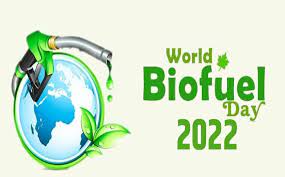
World Biofuel Day 2023 Observed Globally On 10 August: Every year on August 10th, World Biofuel Day is commemorated to raise awareness about the importance of non-fossil fuels as an alternative to traditional fossil fuels and to highlight the different efforts made by the government in the biofuel sector. This day also honors the research experiments by Sir Rudolf Diesel who ran an engine with peanut oil in the year 1893. His research experiment had predicted that vegetable oil is going to replace fossil fuels in the next century to fuel different mechanical engines. Since 2015, the Ministry of Petroleum and Natural Gas has marked World Biofuel Day.
Daily Current Affairs Quiz: August 2023
What is Biofuels?
Biofuels are environment friendly fuels and their utilization would address global concerns about containment of carbon emissions. Biofuels are derived from renewable bio-mass resources and thus provide a strategic advantage in promoting sustainable development and supplementing conventional energy sources in meeting the rapidly increasing transport fuel requirements associated with high economic growth, as well as meeting the energy needs of India’s vast rural population.
Biofuels have the benefits of reducing import dependency on crude oil, cleaner environment, additional income to farmers and employment generation in rural areas. The biofuels programme is also in synergy with the Government of India initiatives for Make in India, Swachh Bharat and enhancing farmers’ income.
Important Biofuel categories in India
- Bioethanol : Ethanol produced from biomass such as sugar containing materials, like sugarcane, sugar beet, sweet sorghum etc.; starch containing materials such as corn, cassava, rotten potatoes, algae etc.; and, cellulosic materials such as bagasse, wood waste, agricultural and forestry residues or other renewable resources like industrial waste;
- Biodiesel : a methyl or ethyl ester of fatty acids produced from non-edible vegetable oils, acid oil, used cooking oil or animal fat and bio-oil;
- Advanced biofuels : Fuels derived from lignocellulosic feedstocks (e.g. rice and wheat straw/corn cobs & stover/bagasse, woody biomass), non-food crops (e.g. grasses, algae), or industrial waste and residue streams with low CO2 emissions or high GHG reduction and that do not compete with food crops for land use. Fuels such as Second Generation (2G) Ethanol, Drop-in fuels, algae based 3G biofuels, bio-CNG, bio-methanol, Di Methyl Ether (DME) derived from bio-methanol, bio-hydrogen, drop in fuels with MSW as the source / feedstock material will qualify as “Advanced Biofuels”.
- Drop-in fuels : Any liquid fuel produced from Biomass, agri-residues, wastes such as Municipal Solid Wastes (MSW), Plastic wastes, Industrial wastes etc . which meets the Indian standards for MS, HSD and Jet fuel, in pure or blended form, for its subsequent utilization in vehicles without any modifications in the engine systems and can utilize existing petroleum distribution system.
- Bio-CNG : Purified form of bio-Gas whose composition & energy potential is similar to that of fossil based natural gas and is produced from agricultural residues, animal dung, food waste, MSW and Sewage water.





